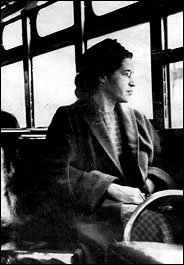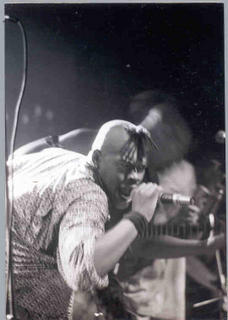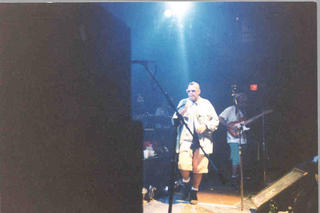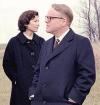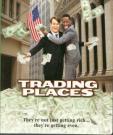Jamie Foxx: Jarhead Roundtable (Q & A)
 A couple of weekends ago I got in on the junket for the upcoming feature film Jarhead starring Jake Gyllenhaal and Jamie Foxx and, subsequently, I attended the press conference in which the film's talent supported the show and fielded questions from the press. The film's based on the novel of the same name written by Anthony Swofford who penned it as a memoir of his tour of duty during the first Gulf War and I think it's a good read, if for anything, to see what the war was like for someone crouched in a sandy fighting hole, six thousand miles away from home while trying to survive and maintain a semblance of sanity.
A couple of weekends ago I got in on the junket for the upcoming feature film Jarhead starring Jake Gyllenhaal and Jamie Foxx and, subsequently, I attended the press conference in which the film's talent supported the show and fielded questions from the press. The film's based on the novel of the same name written by Anthony Swofford who penned it as a memoir of his tour of duty during the first Gulf War and I think it's a good read, if for anything, to see what the war was like for someone crouched in a sandy fighting hole, six thousand miles away from home while trying to survive and maintain a semblance of sanity.In Jarhead, Foxx portrays Staff Sergeant Sykes, a hard-bitten lifer in charge of whipping his team of snipers into shape in preparation for desert warfare -- a far cry from his roles in Ray or Collateral. While I don't cotton to press conferences (I prefer one on ones or even roundtables because they're more intimate and you get better copy/ direct answers to your queries w/o all the standing on ceremony). That said, I attended this press conference and sat amongst a herd of journalists/ scribes. I'm getting ready to write a piece on Foxx for a publication but thought I'd post some of what went down at the Four Seasons in Beverly Hills last Sunday because dude touched on a time that I'd written about on this thing months ago when I started blogging and I thought I'd tie it in -- also, I won't use much of this copy elsewhere and why waste it, yo? While I've included some of the "what's your favorite color?" kind of questions asked by some of my collegues, I think Foxx had a couple of pearls throw into the mix that wouldn't get much play elsewhere (especially the Mike Tyson stuff) so check it out...and also, check the film...or at least Swofford's book...
Q: When you got this part it was before the Oscar and everything -- and I was just wondering, what lead your decision to take on a supporting role?
JF: You know what? I think, in this situation, you look at (the director) Sam Mendes -- to get a relationship with Sam Mendes -- I think it was worth all of that because [he's] an Oscar-winning director and we had such a great time doing the film and in the future -- you know we had a good time - so, [maybe in the future we'd go] let's do some other things. And, like I said at the time, you really don't know what -- nobody really knew what Ray would do. Ray, at one point for a while, didn't have a home. So, you know, we had to get our hustle on -- and [Jarhead] was a great hustle -- because it's a good book. It's meat on the bone, it's not contrived, it's doesn't look like I went to go [and] try to "get all the money" and stuff right after the Oscars -- I did Booty Call -- (laughter) ...I mean, you stay in that vein of where [things are happening] -- because I don't want it to look like 'um, okay, I'm Johnny Carson now -- 'cause I've always enjoyed being the "Ed McMahon." Ed McMahon has always been the coolest spot and what I mean by that is like, Will Smith is Johnny Carson. Tom Cruise is Johnny Carson and I'm like "ho-ho-ho" [ imitating McMahon's laughter from the side couch] and it's been great, you know? So winning the Oscar's kind of like Ed McMahon when he got Star Search -- it's like 'oh, you got your own thang!' (laughter) So, you know, it's all good.
Q: What was the vibe on the set once you got back [after winning the Oscar]?
JF: It was great, man. It was great getting back to the set because those young guys was like 'yo man, how was it?' And I was like (in a quasi-stentorian voice) 'you know,well, I really felt that --' and they were like 'no, no, who was THERE?' (laughter) And I was like, 'aw man, it was Clint Eastwood and, you know, it was Meg Ryan -- it was crazy!' So, it was fun with those guys and I think it's fun with me, uh, having something like that 'cause when you look at other [black] Oscar-winners, you know it's like Halle and Denzel, you know, that's like 'wow', you know that's, kind of, you know -- hey, they won. But with me, you know, like I was down in Miami right after and was at [the stand-up night club] Wet Willie's, you know, crackin' jokes...I'm able to talk about things to those guys [in ways that] maybe some of the other Oscar-winners couldn't talk about it. So, I was giving them stories -- especially about the after-parties, it was crazy...
Q: Okay, your career is sort of split. I mean, yeah, you have the Booty Call era --
JF: --And I still don't understand why we got overlooked [by the Academy] -- (laughter)
Q: Can you talk about what the range is that you've experienced, I mean, you're still a young man --
JF: -- yeah, I mean it's like I said, it's been a great ride. If you look at In Living Color -- I know that some of the In Living Colors are running on B.E.T. now -- and when you look at it, you see the training ground. I mean, because, those guys were doing things -- I laugh even harder now -- and they were doing things that weren't just jokes in your face, they were doing real characters. We were trying to do -- get characters' different feelings, make them more than one-dimensional, so, it was a great training ground being under Keenan [Ivory-Wayans] and Damon [Wayans] and Jim Carey and all of those cats. So, with this, you're happy that you have that background and those tools to be able to -- to be able to go into some of the characters that we've gone into. Because we've played sergeants in some of our sketches. Now all that you do is knock off of the funny and actually play the sergeant. You do Ray Charles or Stevie Wonder -- knock off the funny -- and actually do the character, so, to see it play out like it's played out, it really makes you feel good on the inside of whatever's coming next -- you're going to be able to get into it and try to make it happen for you.
Q: -- And has Tookie Williams reached out to you?
JF: Yes, you know we're working on that right now. If you don't know, we did a story, called Redemption, a movie on F/X -- it was a great, great story -- we got 50,000 letters from young kids that don't want to gang bang anymore; e-mails and things like that. Tookie Williams, who's on death row in San Quentin, has written children's books in the past and they went all over the world -- he got nominated for a Nobel Peace Prize. He's a tortured soul, a tortured man but out of all of that torture some great things happened -- so, they're planning on executing him. And not only that, it's like they can't wait. Because after the movie came out -- you know, I think it was a little too much for them because he became a different kind of icon. But we're trying to get him pardoned...We're trying to go straight to the top -- the governor, you know. And what's sad is they're executing him on my birthday...which is December 13th. And it just really makes [me] go, 'okay, you really got to get in there and fight.' At least you can say ' look, he's doing so, so much good for these kids' and a lot of the time it takes that for the young kids -- to hear somebody from the hood say 'yo man, this is really not what you want to do.' So we're on that like crazy.
Q: How have perceptions changed in the industry since you've won the Oscar? And do you find that you're becoming a LOT more selective about the kinds of roles that you want to do at this particular point in your career?
JF: As far as 'perception has changed' I don't know if that's necessarily [that] perception has changed but it has been a little bit of 'he thinks he's'...you know, 'he think he's...' so, what you have to do everyday is kill that Oscar beast and go out and try to take two or three steps back and not be the ugly person that, I guess, it could turn you into. And the way I've done that is [I've] just kept telling jokes about it -- um, just as if you're feeling like you're doing "thing" -- that you've done won the Oscar and you're feeling like you're at the top of your game, you're at the top of the mountain and you come off the elevator and there's a brother going 'ay Jamie, man, congratulations on that Grammy, dogg. I mean you did your thang, dogg.' (laughter) ...So it lets you know that like 'wait a minute, everybody ain't feelin' it. Everybody didn't get a chance to catch it like [the mainstream audiences did]. So, you take it and bring it back down and you use the Oscar for those things that you really wanted when you used to go up in the office and say (pointing toward the back of the room) 'I need those scripts back there' [and they'd say] 'nah, we ain't giving those scripts out -- can't have those scripts. I'd say 'why because I-I think we could do a great job' -- and now they're offering roles and what's great is, we create on the dribble. We like, we're like - we're basketball players. We create off the dribble. And so, we needed it. I mean we needed it so, like, we could set ourselves up for our careers in the future -- when I say 'create off the dribble' it's like when, you know, they always talk about, you know, like, they say 'the Oscar Curse'. And usually, that's a person that -- if you know basketball -- he's got to come off the screen and shoot it. Meaning that somebody's got to set it up for him. With us, we create it off the dribble -- we do stand-up, so we can go to our left. We do music, so we can go to our right. We can write the movies, so we can go around our backs. You know, we can shoot the three [pointer]. So, by having that, we use it as our tool and try not to bastardize it... because sometimes I've, you know,...used it for...the wrong...[reasons]...(laughter)
Q: -- How about Miami Vice?
JF: Miami Vice is going great, man. Colin Farrell's a great individual - a lady killer (laughs) You know what I'm saying? It's just great to see him get into that Crockett (role) and, again, I'm Ed McMahon oh, ho-ho-ho -- [ imitates McMahon's laughing from the sidelines] so it's right up your alley: guns, you know, the city - and the different look that Michael Mann's going to put on it. It's going to be hot!
Q: Okay Jamie, with Ray behind you, would you turn your back completely on doing any additional biopics in the future? Particularly with the talk of there being a Marvin Gaye story and a Rick James story?
JF: I always though that the Marvin Gaye story was incredible. I mean the Marvin Gaye -- do you know anything about the Marvin Gaye story? There's some things about Marvin Gaye that you don't know in this building - that would BLOW YOUR MIND -- as far as, not even his music. Just him as "the man" there's some things that would make you go WHAAT? So, whoever tells this story, you know it's going to be great. I actually thought --
Q: -- could you pull it off?
JF: -- could I pull it off? I'm sure that I could give a good crack at it. I think the Mike Tyson story is the most interesting story...I think that the most interesting story, the one you don't know -- nobody knows the stuff that I know. The stuff that I found out? It would blow your mind. Mike Tyson gives you phrases that if you listen to [them] it would blow your mind. He said -- they said 'Mike how do you feel?' and he said (imitating Tyson's voice) 'I'm happy. I'm more happy now, I don't don't have any money.' and they said 'why Michael?' -- [as Tyson] 'I don't have to worry about anything. I'm just here.' And it was an interview -- I don't know if you saw it -- and he was with a kid. And he was teaching the kid how to box, he stopped and said 'I'm so happy. I'm so glad I don't have any more money. So I don't have to worry about it anymore. Nobody has to do me wrong. Nobody has to, you know, "F" me over. I'm just glad.' And I said 'that's where you go. Do the story about that.' About how he feels now - after he looks back on what all happened...And he made another phrase, statement. [a reporter asks] 'Mike, I mean, things are just crazy for you -- why is it so crazy Mike?' And [Tyson] says: 'You give a kid, who's 19 years old, 60 million dollars and see how crazy it would be for them.'...
Q: What do you think the message of Jarhead is?
JF: I don't think, necessarily, that there's a message but I think it was great to see the different views, of how it all
 works. When you look at these guys and the job they have to do, you know, Staff Sergeant Sykes he was trying to explain to them simplicity. 'This is what you do, if you don't do this, you'll get killed.' A lot of the time, since we're in Hollywood and we drink capuccinos and we go to brunch -- we think [about things] a lot. And a lot of these guys are from places where they don't "think" a whole lot -- like my friends, when they come from Texas, they go 'why're y'all always talking? Y'all are just debating everything, man. Why don't you be quiet?' And when you do go to Texas, what do you see in Texas? You see somebody on the porch [pantomiming sitting in a rocking chair while staring blankly into the distance] (laughter) -- not saying anything. And so, that was what was in this movie. Like, Jake (Gyllenhaal) and I, when we first started doing this, we'd think 'wow, don't they feel bad? And don't the feel --' But being in the military, it is a simple life, you know? And it just happens that war breaks out, so it complicates it a little bit but it's a simple way of thinking is what Staff Sergeant Sykes was trying to get across.
works. When you look at these guys and the job they have to do, you know, Staff Sergeant Sykes he was trying to explain to them simplicity. 'This is what you do, if you don't do this, you'll get killed.' A lot of the time, since we're in Hollywood and we drink capuccinos and we go to brunch -- we think [about things] a lot. And a lot of these guys are from places where they don't "think" a whole lot -- like my friends, when they come from Texas, they go 'why're y'all always talking? Y'all are just debating everything, man. Why don't you be quiet?' And when you do go to Texas, what do you see in Texas? You see somebody on the porch [pantomiming sitting in a rocking chair while staring blankly into the distance] (laughter) -- not saying anything. And so, that was what was in this movie. Like, Jake (Gyllenhaal) and I, when we first started doing this, we'd think 'wow, don't they feel bad? And don't the feel --' But being in the military, it is a simple life, you know? And it just happens that war breaks out, so it complicates it a little bit but it's a simple way of thinking is what Staff Sergeant Sykes was trying to get across.Q: You ever have a tough time and think of quitting this business?
JF: Oh yeah, man! I moved to Vegas -- right after In Living Color, I couldn't get any work. If you live in L.A., you know if you live in L.A. you got to have your shine on -- if you ain't shining, you dip quick! The minute they found out that the show was over, the scene was like -- I remember seeing this girl, and this was when I knew it was time for me to get out. This girl was walking towards me and I was like [with bragadoccio]'ooh yeah, she's probably seen the show' and she said 'hi...do you know where Chris Tucker is?' (laughter) I was like duh-duh../(stammering) and I was at the Comedy Store. So I said, 'yeah, I'm trying to find him too I-I-I think he's somewhere over there, yeah, yeah, yeah...Then she looked back and said 'You look so familiar.' (laughter) and I was like 'oh man, my shine is gone.'So I’ll never forget moving. I had to move to Vegas because it was bad here. Because cats was going, ‘Whatcha’ gonna do now man? That stuff is over.’ And another Chris Tucker story, at one point I had gotten so into myself because I thought everybody was watching In Living Color -- everybody wasn't watching In Living Color. I'll never forget going up on stage one day and doing rich jokes, like in front of these folks from the hood. I was up there like ‘Yeah, man, I just got that Range Rover. Anybody else?' (laughter) '...My house went into Escrow. Anybody? Man, it’s crazy when your house go on escrow.’ It was like 'motherfucker, What are you talking about?’ So I dropped the mic, ‘Thank you, I’m Jamie Foxx.’(mimics feedback on from a dropped mic) I walk off stage and as I’m off stage, outside the club talking to somebody, I hear the doors open [and the audience roars with laughter]. ‘Who is that? What is that? What are they laughing about? I just left the stage.’ And I walked in and it was a young, thin black guy with bulging eyes by the name of Chris Tucker. This was years ago and he was killing them. And I sat down and I said, ‘That’s what I need to do. I need to go back and find what it is that I do’ because I had lost it. So I moved to Vegas and then we put our heads together and Warner Brothers at the time was looking for some shows. I like the people that like me. It wasn’t ABC, it wasn’t CBS, it was Warner Brothers. We went there and we did The Jaimee Foxx Show and I got a brand new start. I said, ‘I don’t want to ever slip like that again.’ Then I’ll tell you, years went by and I’m in the Laugh Factory and they bring out, ‘Coming to the stage…’ and it was Chris Tucker. And he had a suit on and a red tie and he was telling rich jokes. ‘I wonder if you girls really love me for me or for my money.’ And it was like wow. I went to him and said, ‘Yo, I see what’s happening. You’ve gotta go back and get it.’ And I challenged him, I challenged Cedric the Entertainer, I challenged Bernie Mac, I said, ‘Now, don’t lose that because once you lose that, it’s hard to try to get it back.’
Q: How is your pickup with ladies changed since the Oscars?
JF: It’s changed drastically. I bought a Lamborghini too. It’s crazy. I think what it is is that it’s a different type of women when you win an Oscar. All the young in the club, I ain’t messing with you right now. I got this over here, the 35 and over with their own companies. They break down everything. ‘You know, that night I was so touched.’ ‘Girl, I’m gonna touch you again.’ That’s the thing that I can say that maybe Halle and Denzel can’t say because I’ll never forget the joke I told Will. It was like I’m making love to this girl right after I won the Oscar. She said, ‘Oh, Jamie.’ I said, ‘No, no, no, that’s not my name.’ ‘Oh, Academy Award Winner Jamie Foxx.’ Oh, baby. So I’ll tell you, if you ain’t got one -- get you one.
Q: Jake and Peter (Sarsgaard) were talking about the craziness of shooting in the desert -- Something about insanity on the set?
JF: It was like if you allow yourself to be in those characters and you allow yourself to get into things of where, these guys, even though they were shooting blanks, they still wanted to make it look as if they were the best at what they do, so you had a healthy amount of competition, healthy amount of that and that’s what it’s all about. And I think that when you look at the Marines over there, ex-marines, marines that are in the corps, they have sort of like a social club in a sense. They were talking about things that were pertaining to what if this happened, what if that happens? You find your way. You find your way to hang and you find your way of keeping things interesting. There’s always interesting people that you meet that are from different parts of the world that you bag on and dump on, stuff like that. So it was a lot of fun.
Q: Did you come away with any specific judgments about Marine Corp life? It seems hard, barbaric and a tough way to exist..."
 JF: No, that’s what I’m talking about. See, you’re away from it. I think it’s your demographic. It really comes down to. I mean , when I talk to my friend who’s a black guy, he says, ‘Yo man, I think he got ‘em dawg.’ I say, ‘What?’ ‘That Saddam, man, he got the weapons of mass destruction.’ They believe it. I said, ‘No, I don't know. I don't think so. I don't know.’ In LA, we ponder. In New York, whatever, you ponder, you think, you wonder. But the demographics where a lot of these guys are from, it’s not barbaric to them because we look at life as we want to be the thinking people and figure out things. But for them, when you go back to our home town and you have that soldier’s uniform on, you’re heralded. You went and you did it. You went and did something for your country and I know it sounds weird but people still say, ‘God bless America’ in parts of this world. Although it’s weird for us to say America because like I said, we’re thinking of what is America portraying? They don’t think like that. So it’s like for them, that is their superbowl. That is their Oscar. That is their Stanley Cup. And you come back and you say, ‘Yo, man, I went out there and I protected y’all.’ That’s where you have to get. You have to get in there and sit with them and see how it really is.
JF: No, that’s what I’m talking about. See, you’re away from it. I think it’s your demographic. It really comes down to. I mean , when I talk to my friend who’s a black guy, he says, ‘Yo man, I think he got ‘em dawg.’ I say, ‘What?’ ‘That Saddam, man, he got the weapons of mass destruction.’ They believe it. I said, ‘No, I don't know. I don't think so. I don't know.’ In LA, we ponder. In New York, whatever, you ponder, you think, you wonder. But the demographics where a lot of these guys are from, it’s not barbaric to them because we look at life as we want to be the thinking people and figure out things. But for them, when you go back to our home town and you have that soldier’s uniform on, you’re heralded. You went and you did it. You went and did something for your country and I know it sounds weird but people still say, ‘God bless America’ in parts of this world. Although it’s weird for us to say America because like I said, we’re thinking of what is America portraying? They don’t think like that. So it’s like for them, that is their superbowl. That is their Oscar. That is their Stanley Cup. And you come back and you say, ‘Yo, man, I went out there and I protected y’all.’ That’s where you have to get. You have to get in there and sit with them and see how it really is.Q: So, what's next for you?
JF: Miami Vice is right now. Dreamgirls later on. And then I will do Kingdom. And we got the album out there that Kanye West, I call it Smithereens now -- it’s not just a smash. "Take My Money" is killing right now. I think that’s some kind of history too. I don't know too many Oscar winners that had number one songs. We’re doing that and then I got my own clothing line coming out, I got my own shoe, I got hats -- I’m kidding. No, but actually December 6, my album comes out and that’s one of those things. It’s like the guest list alone, it’s on J Records, the guest list we got Snoop, we got Timbaland, we got Ludacris, we got Mary J Blige and I fooled ‘em a little bit too because I got some young stuff at the beginning and young stuff at the end but in the middle there’s our stuff. Some make love, how you doing, get to know you, treat your woman like this, treat your man like that so infidelity here, infidelity on both sides...we’re dealing with things like that so in that -- in the middle -- you get all that so you all don’t go, ‘Oh, this is some junior-ass stuff.’
....Jarhead opens in theaters nationwide, like, this Friday, November, 4th...Laters...























